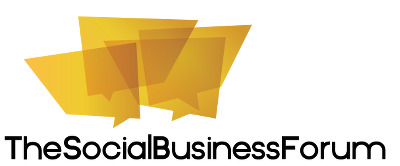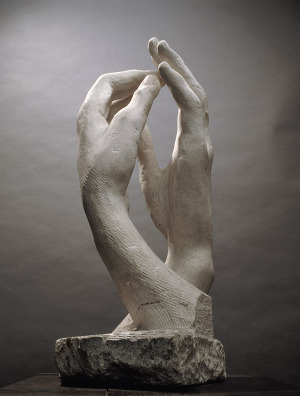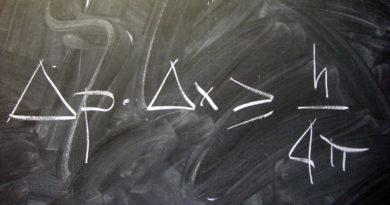The Social Business Forum: international event or kairòs?
 On 7 and 8 July the Social Business Forum will be held in Milan, organized by OpenKnowledge, a company providing management consulting focused on digital and social transformation. The international event bases its agenda on the issues of the collaborative organization, open innovation and participatory marketing.
On 7 and 8 July the Social Business Forum will be held in Milan, organized by OpenKnowledge, a company providing management consulting focused on digital and social transformation. The international event bases its agenda on the issues of the collaborative organization, open innovation and participatory marketing.
The term “Open Knowledge” leaves room for a broad scope interpretation. Although holding the same name, the Milan-based consulting company must not be confused with the Open Knowledge OKFN, a nonprofit network organization founded in 2004 in Cambridge (United Kingdom) in order to open the information and create a sharing knowledge.
OKFN, through its activities, envisions a world where:
- Knowledge creates power for the many, not the few.
- Data frees us to make informed choices about how we live, what we buy and who gets our vote.
- Information and insights are accessible – and apparent – to everyone.
The company Open Knowledge, in its turn, has instead published in 2012 the Social Business Manifesto, their strategic vision in 59 points which explains how it is today required to companies to transform through a collaborative and emergent path.
The upcoming Social Business Forum is now at its eighth edition and it will certainly be an event that will attract many participants, looking at the agenda and the involved speakers. But will it be possible that a new international event aimed at businesses may finally turn into an opportunity for change?
It is hoped that this event will be the beginning of other initiatives that help to understand the full potential of distributed knowledge and the multiple fields that can be enriched by these resources.
Business leaders and the management structure will inevitably have to revise their business paradigms expanding their visions beyond their abilities. The main challenge is to ensure that the managers will change their frame of reference, introducing new methods to understand the complex dialectic of reality and overcoming the barriers of their personal expertise.

We also hope for a further connection between all domains that already have entered the resource of open and distributed knowledge, which has – among its most interesting features – the ability to exponentially multiply the potential of individuals, research institutions, scientific disciplines, etc., connecting them in a large interdisciplinary project.
In this regard, many scholars, experts and international researchers have greatly contributed to a new vision that tends to bring attention to overcoming barriers of specialization and to allow the company management to activate their intuitive and creative abilities. See for example the previous articles in this blog.
The French philosopher Edgar Morin wrote: “We need a kind of thinking that relinks that which is disjointed and compartmentalized, that respects diversity as it recognizes unity, and that tries to discern interdependencies” (Morin, E. and B. Kern. 1999. Homeland Earth: A manifesto for the new millennium).
Alfonso Montuori is currently Professor in the Transformative Inquiry Department at California Institute of Integral Studies, where he designed and founded the Transformative Leadership M.A. and the Transformative Studies Ph.D. In his article “Complexity and Transdisciplinarity: Reflections on Theory and Practice” he wrote: “The networked society, with the amazing power of new technology, gives us access to more information than ever before. The problem now is not access to information. It’s how to organize that information, turn it into knowledge, and use that knowledge wisely. This is the challenge of Complexity and Transdisciplinarity”.
Gilbert Durand, anthropologist, philosopher and one of the most subtle and brave hermeneutists of the twentieth century, has repeatedly stressed the need that all the Sciences of Man will return to be a single Science of Man whose center, the common symbolic place, has to be a ‘science at the borders of knowledge’.
The theoretical physicist Basarab Nicolescu, founder of CIRET and author of the Manifesto of Transdisciplinarity, said: “It might seem paradoxical that it is from the very core of exact sciences that we arrive at the idea of limits of disciplinary knowledge. But from within, it provides evidence of the fact that, after a very long period, disciplinary knowledge has reached its own limitations with far-reaching consequences not only for science but also for culture and social life” (B. Nicolescu – Methodology of Transdisciplinarity – Atlas 2010).
Therefore, from every sector of modern society it is felt with strength and determination the need for a wider participation of man (and with him, the enterprises that he manages and directs) to a vision of life and of the principles that are part of it, blurring the barriers imposed by the increasing technological specialization. It seems that the moment is propitious for change, to find again that integration capability, intuition and creativity typical of the analog connections of human thought.
The upcoming Social Business Forum could take this opportunity and make the two-day conference a real kairòs of the transformative innovation. That is our hope.



